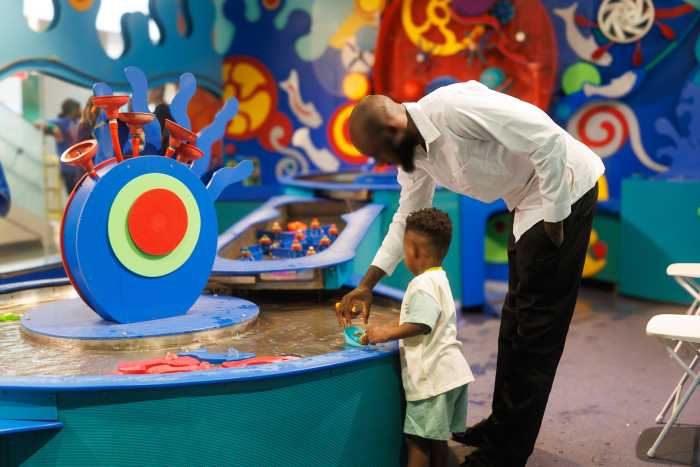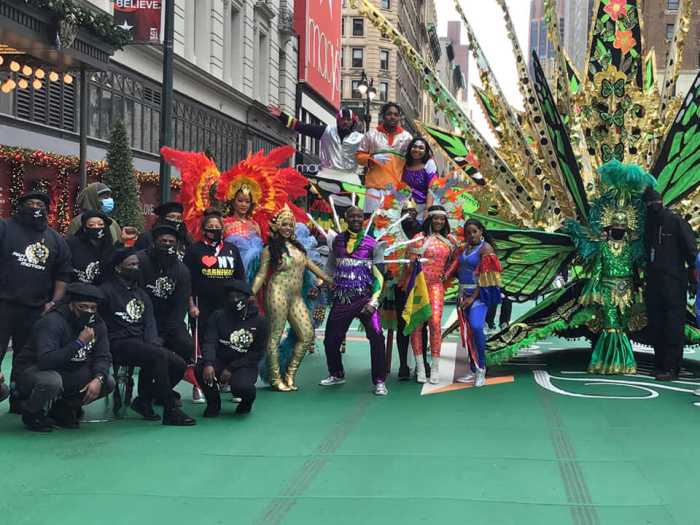“It’s topical, but it’s true,” said the queer auteur John Cameron Mitchell in his groundbreaking musical and film “Hedwig and the Angry Inch.” The very same could be said of his newest project “Anthem: Homunculus,” a “musical podcast” now streaming on Luminary (luminarypodcasts.com). Well… not strictly true. (Mitchell’s profile on Wikipedia has a link to “Dramatic License” in the See Also box.)
“It’s my autobiography,” he has said. “With friends helping because it’s less lonely.”
“Anthem: Homunculus” tells the story of Ceann (pronounced KEY-ann), a speculative bio sort of version of Mitchell.
“Ceann is me if I never left that small town” he has said — and if he never moved to the big city and took the risks he has to become, first, a sought-after actor (“The Secret Garden,” “Six Degrees of Separation,” Larry Kramer’s “The Destiny of Me”), then an innovative film director (“Hedwig,” “Short Bus,” “Rabbit Hole,” “How To Talk To Girls At Parties”), and, recently, a favorite TV actor (“Shrill” — what else?). This summer, he won the Provincetown International Film Festival’s Filmmaker on the Edge Award.
In “Anthem,” Ceann has a brain tumor and in an act of desperation begins an online Kickstart-y fundraising campaign from his doublewide trailer home to pay for medical treatment that he otherwise has no access to. Topicality? Check. There are 10 episodes in this first season and a smorgasbord of songs, written by Mitchell and his collaborator, composer Bryan Weller, and voiced by Mitchell himself along with faves Glenn Close, Patti LuPone, and Denis O’Hare. It’s visceral stuff for Mitchell and so, too, for his listening audience. Strangely intimate, it pulls you into the panic and despair and uncertainty of serious illness, but then lifts you up with the power of friendship, love, and music to heal our souls, if not our heads.
Gay City News talked to Mitchell backstage at the rally in Central Park as part of the Queer Liberation March in June and later by phone just hours after he had just taken the red-eye to Portland for new shooting of “Shrill.” He had a cold, had barely slept, was in full-on writing mode and, though extremely polite, sounded just miserable, so I proposed that we finish out our conversation via email.
CHRISTOPHER MURRAY: At Gay Pride in June, you and Stephen Trask performed “The Origin of Love” from “Hedwig” at Town Hall and sang that song the next day at the rally in Central Park for the Queer Liberation March. What did it mean to you to participate?
JOHN CAMERON MITCHELL: It was my first time singing at a Gay Pride rally and this particular one was so important for Stephen Trask and me. We’ve enjoyed many advances in queer rights since the nightmare of AIDS, but of course they are all at risk with the unnamable regime in power who is teaching a new generation to hate.
MURRAY: Your character from “Anthem” Ceann’s name means “head” in Irish. Before that was Hedwig. Are you trying to tell us something? Our heads are where we make up our stories, our meanings, so it can be both a place of imprisonment but also of liberation. Does that resonate with what you’re trying to do with Ceann’s story, as an artist?
MITCHELL: That’s correct, but also Ceann has a brain tumor, which he’s forced to deal with by crowdfunding his treatment. My parents both had Alzheimer’s. As a storyteller, I guess my greatest fear is to “lose my head”.
MURRAY: There’s something of the fairy tale in a lot of your work and certainly was in the character of Hedwig, formerly known as Hansel. Is Ceann living out a fairy tale in “Anthem: Homunculus?” Do you believe in miracles?
MITCHELL: Once the Bible fell short for me as a young Catholic homo, fairy tales, myths, and comic books replaced it. I still revere metaphor, allegory, symbolism. I do believe in human miracles. Liberals believe we are inherently good and then the environment fucks with us. Conservatives believe we are inherently bad (except when seeking a profit), and must be corralled by social controls. Our song “The End of Love” from “Anthem” is a break-up song with the God I grew up with. A sample lyric: “The end of the love is a deus ex machina. But ain’t that better than a deus? So much more humane. So much more remains after the play is over.”
MURRAY: You said in an interview that you don’t so much identity as gay any more or certainly not as strongly. Why not?
MITCHELL: Gay has become a marketing niche. Like “top” and “bottom,” “man” and “woman,” and “comedy” and “drama.” You slice and dice so you can sell or be sold to — or to decide what show belongs in which Emmy category. Life has no niches, it’s a complex continuum with nuance and surprising juxtapositions. I don’t like to be marketed to and told what I am or should like because of my gender or sexual preference.
MURRAY: You’ve talked a lot about empathy, queer folks’ special skills at it, empathy being the opposite of “cancel culture.” Can you explain?
MITCHELL: The gift of being “other” is having empathy for the downtrodden and oppressed. “Woke” without empathy is just another form of control. Here’s an example. If you believe in prison reform and rehabilitation then you can’t cancel people. We, as queer people, have been canceled for centuries. Let’s make folks accountable and safe but let’s not co-opt our oppressors’ bullying ways.
MURRAY: I was really surprised how intimate the podcasts are. I’m used to podcasts having that reportorial distance. But you’re right under the covers with me and it’s powerful and sometimes unnerving. Comment?
MITCHELL: My composer Bryan Weller and I wanted to push the audio form in the direction of cinema — a cinema of the mind that enfolds you rather than tweets at you. It required much more time and care to create the believable density required. Modern day listeners are not used to that kind of density. They’re used to something easily digestible like the podcast “Serial,” which repeats its facts over and over, assuming that people aren’t paying close attention. We want to encourage attention. Studies say that folks who read fiction have more empathy than people who read news. I read that on HuffPo and it really moved me. 🙂
MURRAY: So many queer people who admire your body of work feel such a visceral connection to you personally. What does that mean to you?
MITCHELL: It’s been a privilege to affect people in a positive way. We approached our work with “Hedwig,” “Shortbus,” and “Anthem” in a very pure, uncommercial manner so maybe folks trust it more. I know “selling out” is an archaic term, but there is a joy is doing something purely for love. I do other things for money, but not the work closest to my heart, which often comes up as a financial net loss, but an emotional gain.
MURRAY: You’ve talked about “Anthem: Homunculus” being a kind of artistic purging of guilt and maybe a bridge to the next act of your life. What would you like that next act to be like?
MITCHELL: I moved a lot as a kid. And my work has a peripatetic element. I think my next act is building a true home, whatever that turns out to mean.

















